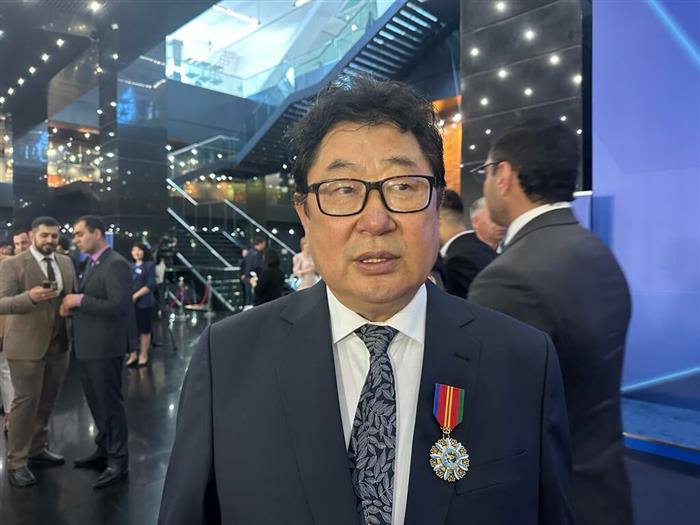Feedback from Kim German Nikolaevich on an interview with Kassym-Zhomart Kemeluly Tokayev
Views: 289

In the first days of the new year, an interview with President K-Zh was published in the Egemen Qazaqstan newspaper. K. Tokayev, in which many topical questions were raised, the answers to which were expected by Kazakh society. Frankness and scrupulousness ran through all the answers of the head of state, despite the fact that some of them sounded “inconvenient” and, perhaps, in the journalist’s opinion, “unpleasant.”
At the beginning of the interview, President Tokayev again congratulated his compatriots on the New Year and briefly summed up the results of 2023 in terms of major political reforms, building a fair and competitive economic system, and resolving pressing issues in the social sphere. He also emphasized the special importance of 2024, which lays the foundation for the next five-year development cycle of the country.
Then the head of state answered 21 questions voiced by the journalist, but coming from wide circles of Kazakh society. They covered a wide range of domestic and foreign policies: from the reasons and lessons of Kantar, rumors about the intention to hold a referendum on changing the Constitution, the presence of political prisoners in Kazakhstan, the possibility of criticism by citizens of the country of power. The President did not evade a single question, did not avoid any sharp corners, and answered directly and unequivocally.
The second block of questions concerned the economy; it contained optimistic notes regarding the growth of the country’s GDP and the expected GDP per capita in five years, solving the problems of people’s debt burden, inflation, and the situation in the fuel and energy industry. The head of state proposes to submit the issue of construction of a nuclear power plant to a national referendum.
A separate block included questions about foreign policy and relations with Russia, China, participation in international organizations, and expected foreign policy events. The head of state in his answers once again confirmed the highest competence of the diplomat.
Then came scattered questions, answers to which many people expected: about the fight against domestic violence, personnel shortages, lack of experience and knowledge of young managers, a departure from the archaic and the transition to the path of progress in the minds of citizens.
Questions that were of a very personal nature were no exception, and they touched on impressions from Nazarbayev’s memoirs, on the prohibition of pomp during the head of state’s trips to the regions, and on being demanding of his subordinates.
I am sure that every citizen should read the interview and think about what he can do to ensure that our homeland successfully moves towards a new, fair, listening, successful and authoritative state in the international arena.
Kim G.N. Doctor of History, Professor, Honored Worker of Kazakhstan
Director of the Institute of Asian Studies of Al-Farabi Kazakh National University








